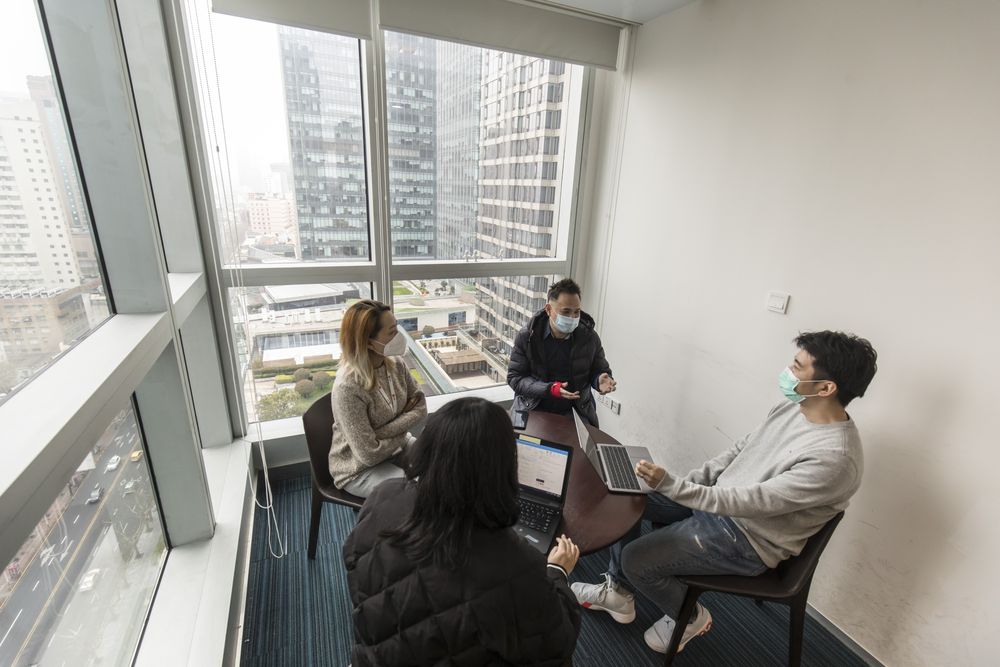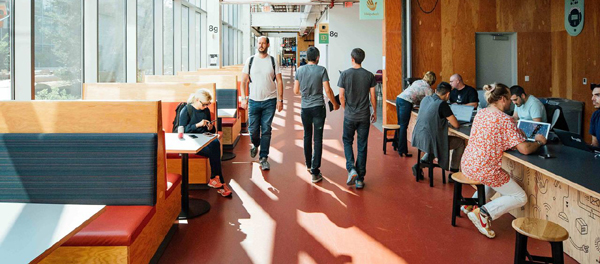Prevention Tips For Office Environment – During Coronavirus

Health authorities, in various geographical areas, have been taking isolation measures or prohibiting certain activities to prevent the spread of the Covid-19 Coronavirus. In addition, they have given generic advice for other activities in our daily life. But, how can we maintain our work activity at offices minimizing the risks of contagion by Coronavirus?
1. The employer must act if an employee returns from a risk zone
Companies should avoid business trips to risk areas, the list of which is updated. In the event of the return of an employee from a risk zone or in the case of an employee in contact with an infected person, for 14 days, the employer must reorganize his work station.Telework is preferred. The labor code also mentions epidemic risk as being able to justify the use of teleworking without the employee’s agreement. If working from home is not possible, the employer must make sure that the employee avoids the places where “fragile people” are, any outing or meeting not essential and close contacts, in the elevator. Here are measures to reduce the risk of mass gatherings:
• increase the distance between people (ideally separate them by at least two meters and warn them not to shake hands and avoid common rest areas);
• provide hand sanitizer dispensers in conspicuous places to promote frequent hand hygiene;
• Hand washing should be done frequently with soap and running water for at least 15-20 seconds after going to the bathroom and
• Use hand sanitizer after touching toilet gates, doors or handling waste and linen contaminated with bodily fluids.
2. The employee can be ex-filtrated from his company
If these measures are not possible, the employer can ask the employee to stay at his home. The employee can then contact the ARS (regional health agency) so that a doctor can prepare a work stoppage notice corresponding to the recommended isolation period. If he does not obtain this notice and his employer refuses him access to the premises of the company, his remuneration is still maintained. If the employee had not yet set his leave, then the employer cannot impose it on him during this incubation period.

office environment against Coronavirus
3. The premises must be cleaned if an employee is contaminated
If the employer has suspicions about the contamination of one of his employees, he must encourage him to consult the dedicated government website, then if the doubt becomes serious, call emergency helpline number (+91-11-23978046). If the person is not unable to do so, the employer does it for him. If an employee of the company is finally contaminated, the employer must clean the premises (floors and surfaces), indicates the ministry. A latency period to intervene is desirable, as the virus can “probably” survive three hours on dry surfaces. The personnel in charge of this cleaning must be equipped with a disposable lab coat and household gloves. “The wearing of a respiratory protection mask is not necessary because of the absence of aerosolization by floors and surfaces”, we read in the document. The same source details how to clean floors in this situation. The waste produced by the contaminated employee follows the traditional disposal route.
4. Right of withdrawal, yes, but…
The labor code provides that the worker can withdraw from a work situation if he has a ” reasonable” reason to believe that it presents a “serious and imminent danger” to his life or his health. In the specific case of coronavirus, if the employer does not follow the recommendations of the government (very general), then, the employee can use his right of withdrawal, ensures the Ministry of Labor. The administration takes all the same precautions by recalling that the relevance of the use of the right of withdrawal remains subject to the sovereign appreciation of the courts. Conversely, the employee cannot exercise his right of withdrawal only if one of his colleagues returns from a risk zone or has been in contact with an infected person.
5. Prevention messages
“Everyone can be a hero” in the fight against the spread of the virus. It would be good for companies to broadcast messages reminding “simple but essential gestures”, in several languages and “wherever necessary”.
1. Washing your hands every hour,
2. coughing in your elbow
3. and using single-use tissues
These are the three main things to do. Masks are only useful for people in contact with sick people.



